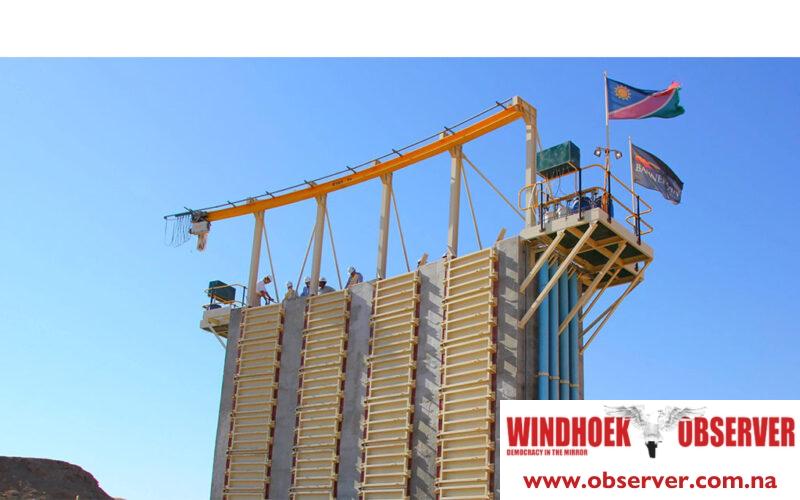Chamwe Kaira
Ronnie Beevor, the Chairman of Bannerman Energy, which is actively involved in developing the Etango uranium project, has emphasized that many nuclear-powered nations, such as China, India, Japan, Great Britain, France, and the USA, are either extending the operational lifespan of existing nuclear reactors, often by more than 60 years (80 years in the case of the USA), or embarking on the construction of new ones.
In 2021, Namibia was the world’s second largest uranium producer with 5,753 tonnes produced.
He pointed out that there are approximately 437 operational nuclear reactors worldwide, with an additional 60 reactors under construction and another 100 units in advanced planning stages. Notably,
Beevor highlighted China’s prominent role in new reactor construction, where they are on track to build ten new reactors annually for the next 15 years.
Furthermore, Beevor noted that nearly 30 other emerging nuclear energy nations across various regions, including Europe, the Middle East, Africa, Central and South America, Asia, and Oceania, have initiated the process of planning, proposing, or constructing their inaugural nuclear reactors.
The World Nuclear Association anticipates a 3% to 4% annual increase in demand over the next two decades. However, Beevor underscored that the development of new uranium mines is a lengthy process, typically requiring at least ten years from discovery to production.
Beevor also provided an update on Bannerman Energy’s progress during the 2023 financial year, highlighting significant milestones achieved for the Etango project. These accomplishments encompassed the acquisition of all necessary environmental clearance certificates and National Heritage consents, making the project fully permitted in these aspects. Additionally, in August 2022, the company submitted its application to the Ministry of Mines and Energy for the mining license, and in December 2022, they completed the Etango-8 Definitive Feasibility Study.
Regarding the Etango project’s engineering and design phase, Beevor reported that it has been progressing according to schedule. He emphasized that metallurgical test work confirmed the essential parameters for the design process, and the detailed mine design has been completed, facilitating contract finalisation.
Beevor observed a growing positive sentiment surrounding nuclear energy in the public domain. He attributed this trend to global policy announcements favoring increased nuclear energy deployment, driven by the deepening global energy crisis and the broader repercussions of the conflict in Ukraine.
Supply disruptions, surging demand for electrification, and the economic and social impacts of rising energy prices have highlighted the necessity for secure, reliable, affordable, and clean energy. Nuclear power has emerged as the only energy source capable of consistently providing emission-free electricity at a high level, thus gaining momentum on the demand side.




